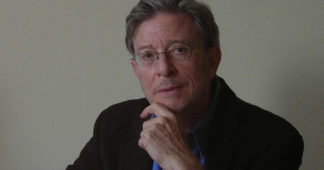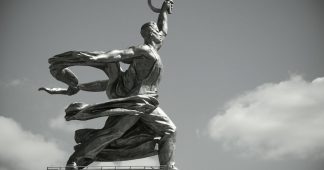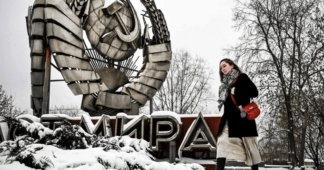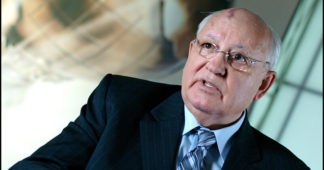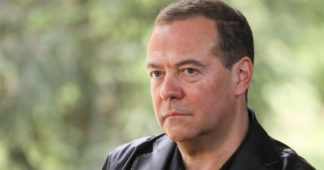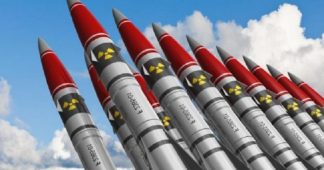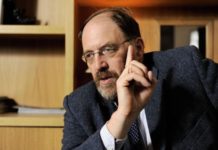A moment with…Stephen F. Cohen
By Mark F. Bernstein ’83
April 23, 2008
To gauge how much international politics have changed over the last 40 years, consider the changing title of the course Stephen Cohen has taught at Princeton and at New York University, where he is now a professor. When he joined the Princeton faculty in 1968, he taught “Soviet Politics.” By the time he left as a professor emeritus in 1998, the name had changed to “Soviet and Russian Politics.” At NYU, Cohen teaches “Russia Since 1917,” which embraces the political changes in that country sine the revolution. He spoke with PAW’s Mark F. Bernstein ’83 after returning from a short trip to Russia.
You have argued that the breakup of the Soviet Union undermined the march toward democracy in Russia. Didn’t the breakup make that march possible?
The United States has a bad case of historical amnesia about what happened in the Soviet Union under Gorbachev. The first significantly free elections in Russia occurred in March 1989, under Gorbachev. In early 1990, they had elections to the parliaments of the 15 Soviet republics, including the Russian republic. It was the freest, fairest election in Russian history. After that, things got worse. Shortly after Boris Yeltsin became the Russian president, he used tanks against the Parliament when it refused to approve his economic plan. From that moment on, elections became increasingly unfair.
Two things undermined the democratization process. One was that the Soviet Union was abolished without any national vote or other democratic procedure. The second was that members of the Soviet elite seized the richest assets of the state when the country dissolved, including its natural resources. That elite was then afraid to have fair elections because they feared the people would elect leaders who would take that property from them and maybe send them to jail. Russia won’t have real democracy again until it resolves this property question.
Has Russian life improved since the fall of the Soviet Union?
A small group of people became fabulously wealthy by seizing the Soviet state’s assets. These Russian oligarchs haven’t created anything new; they’ve grown fabulously rich by plundering the economic carcass of the Soviet Union, and shipped much of their wealth out of the country. I would say that a majority of Russians still live less well than they did under the Soviet regime. There are fewer welfare entitlements and subsidized prices, including for health care, so many people can’t afford them.
Is Vladimir Putin just the latest Russian autocrat?
He’s more of an authoritarian. He’s dependent on a segment of the political class, so he can’t do whatever he wants. His legacy in the minds of Russians is that he saved the Russian state from the disintegration of the 1990s, preserved its territorial integrity, and re-created a government that could perform basic functions. The criticism is that he went too far.
Will the new president, Dmitry Medvedev, be a Putin puppet?
I don’t know, but neither do they. Medvedev is Putin’s protégé, and they think it will work to have Medvedev as president and Putin as prime minister. But Russia has had bad experience with what it calls “dual power.” How will they divide power? Where will the Russian bureaucrats look for final authority? If it comes to a choice between the two of them for pre-eminence today, Putin would win. But Medvedev’s authority will increase over time as he grows into the Kremlin presidency. Watch the extent to which Medvedev becomes the real foreign-policy leader. If Putin continues to play a significant role in these functions, Medvedev has not acquired that authority.
Is NATO expansion needlessly provocative?
I think it’s disastrous for American-Russian relations. If it weren’t for the war in Iraq, we would understand that Russia is still our No. 1 national-security concern. Only Russia has the weapons that could destroy us. It has a vast share of the world’s energy. Russia sits at the crossroads between Judeo-Christian and Islamic civilizations. It’s also the world’s first- or second-largest exporter of weapons, and its capacity for good or mischief is enormous. Remember, too, that George H.W. Bush promised Gorbachev in 1991 that if Soviet Russia agreed to allow a united Germany in NATO, NATO would not move one inch to the east. Beginning with President Clinton, we have repeatedly violated that promise.
What should American policy be toward Russia?
First, the next president should stop lecturing Russia and acknowledge that it is a sovereign nation with national interests equal to those of the United States. Second, the expansion of NATO must stop. Third, we need to resume the process to control and reduce nuclear weapons. … If we did these things, I am convinced that the Kremlin would respond in ways that would greatly increase our national security.
Published paw.princeton.edu
Also read
The Soviet Century
We remind our readers that publication of articles on our site does not mean that we agree with what is written. Our policy is to publish anything which we consider of interest, so as to assist our readers in forming their opinions. Sometimes we even publish articles with which we totally disagree, since we believe it is important for our readers to be informed on as wide a spectrum of views as possible.
